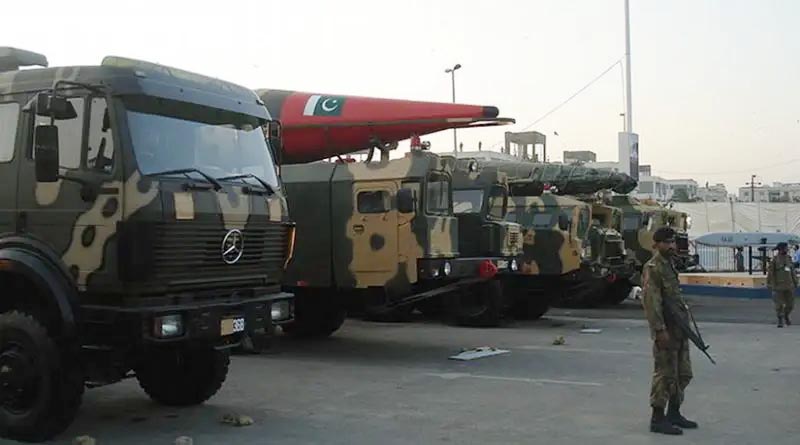| |
| Pakistan`s new deterrence equation |
| |
| |
 |
| |
| |
| MT Desk: Following the four-day military conflict with India in May, Pakistan created a new Army Rocket Force Command (ARFC). Some dismiss it as a hurried move in the aftermath of recent Indo-Pak tensions. Others suspect it signals a shift toward escalation. Both views miss the point. Background discussions with relevant authorities suggest the ARFC is not an overnight reaction but rather the culmination of a long, painstaking evolution in Pakistan`s conventional military doctrine.
For decades, Pakistan has been grappling with a fundamental challenge on how to balance India`s overwhelming conventional superiority without sliding into overreliance on nuclear weapons. The answer, refined gradually by military planners and scientists, has been to strengthen long-range conventional strike options. The ARFC is the manifestation of that journey.
At its core, ARFC consolidates Pakistan`s long-range rocket and missile capabilities under a single command structure. Until now, artillery divisions with long-range vectors were dispersed, operating in relative isolation. Bringing them together under one umbrella reflects an effort at synergy, efficiency and doctrinal clarity. It is about using what already exists in a smarter way.
The Fateh-series rockets stand at the heart of this project. With their enhanced range and precision, they symbolise a new phase in Pakistan`s conventional response regime. These rockets are not just about raw firepower, they are about control, flexibility and credible deterrence short of the nuclear threshold. In future conflicts, such capabilities will allow Pakistan to deliver short, sharp and intense firepower duels in order to impose costs without inviting full-scale war.
The timing of ARFC`s unveiling invites speculation. India has been steadily expanding its conventional military edge, investing in missile defence systems and modernising its forces. Against this backdrop, Pakistan`s move is as much about perception management as operational readiness. By institutionalising ARFC, Islamabad sends a clear signal. It has the means to circumvent India`s air defence umbrella and strike across its territory.
This matters in deterrence psychology. If India believes Pakistan lacks credible conventional responses, it may be tempted to push the envelope. The ARFC is designed to raise those costs and close that window of temptation. South Asia`s deterrence debate has long been dominated by the nuclear question. Yet deterrence does not begin and end with nuclear weapons. Conventional capabilities matter. They shape the spectrum of conflict that exists below the nuclear threshold. ARFC serves as what analysts call an "operational leveler". It dilutes conventional asymmetry and complicates Indian war plans.
By holding high-value targets at risk deep inside Indian territory, ARFC expands Pakistan`s options in the event of a crisis. More importantly, it strengthens deterrence by punishment, the ability to inflict quick and decisive costs on any adversary who dares to test Pakistan`s resolve.
Skeptics will ask whether ARFC blurs the line between conventional and nuclear deterrence. The answer lies in its very design. These are conventional systems, developed indigenously over decades, separate from Pakistan`s nuclear arsenal. Their utility is not in threatening nuclear war but in providing a credible non-nuclear option.
India may accelerate its counterforce modernisation or deepen reliance on missile defences. The spiral is a familiar one in South Asia. Still, the alternative, relying too heavily on nuclear weapons to plug conventional gaps is riskier. In that sense, ARFC represents the lesser evil – a rational, even responsible attempt to restore balance at the conventional level. What ARFC offers is the ability to ensure that any conflict remains short, sharp and intensely costly for the aggressor. That is not escalation for escalation`s sake; it is deterrence in its purest form.
War between two nuclear states remains unthinkable. But peace is only preserved when both sides understand the price of miscalculation. ARFC is Pakistan`s way of making sure India understands that price.
|
| |
|
|
|
| |

|
|
Chief Advisor: Md. Tajul Islam,
Editor & Publisher Fatima Islam Tania and Printed from Bismillah Printing Press,
219, Fakirapul, Dhaka-1000.
Editorial Office: 219, Fakirapul (1st Floor), Dhaka-1000.
Phone: 02-41070996, Mobile: 01720090514, E-mail: [email protected]
|
|
| |
|

